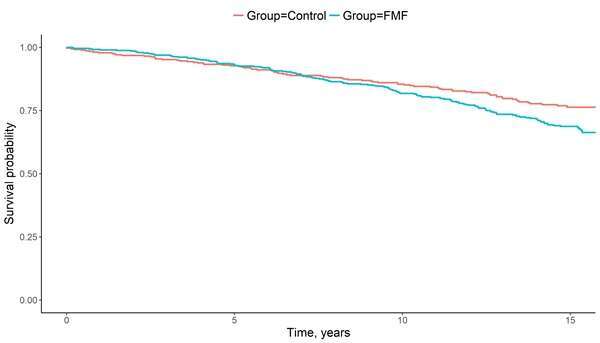
Increased Risk of Ischemic Heart Disease and Mortality Among FMF Patients – Perspective from a Big Database
Background
Familial Mediterranean fever (FMF) is a systemic inflammatory disease with inherited features.
Objective
To check whether association exist between FMF and ischemic heart disease (IHD), as well as to assess the long-term prognostic significance of IHD among FMF patients using a big data registry with a 15-year follow-up period.
Methods
Utilizing the medical records of Clalit Health Services, the largest HMO in Israel, we extracted a cohort consisted of FMF patients along with their age-and-sex matched controls. Dates of registration in the medical records of FMF, IHD and death, as well as anthropometric information and medical comorbidities were extracted from the database. To compare the distribution of variables across the cohort strata, univariate analysis was performed using Chi-square and student t-test. Multivariate analysis using a logistic regression model was used to find variables associated with IHD. Survival analysis using Cox proportional hazards method and a log-rank test was performed to find variables associated with increased risk of all-cause mortality.
Results
The cohort included 7,670 FMF patients and 7,670 age-and-sex matched controls. The mean age of both groups was 39.1, and both consisted 50.1% females. IHD was observed among 491 FMF patients (6.4%) vs. 375 controls (4.89%), p
Conclusion
IHD is associated with worse prognosis among FMF patients compared to controls. Proper screening methods are recommended to assess whether early identification and treatment may improve life expectancy


Powered by Eventact EMS